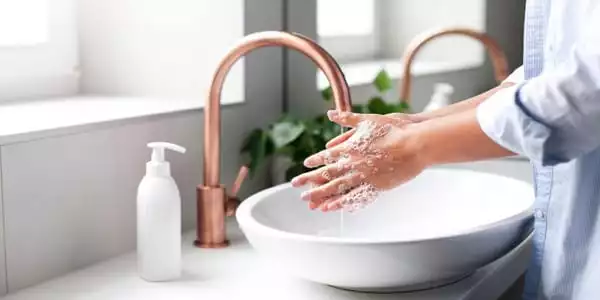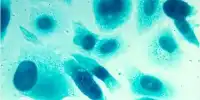According to a new study by researchers at UCL and the London School of Hygiene & Tropical Medicine, the theory that modern society is too clean, resulting in defective immune systems in children, should be swept under the rug. The ‘hygiene hypothesis’ in medicine states that early childhood exposure to specific microorganisms protects against allergic diseases by aiding in the development of the immune system.
However, there is a widespread belief (public narrative) that Western 21st-century society is overly hygienic, which means that toddlers and children are less likely to be exposed to germs in childhood and thus become less resistant to allergies. Researchers point to four significant reasons in this paper, published in the Journal of Allergy and Clinical Immunology, to disprove this theory and conclude we are not “too clean for our own good.”
“Exposure to microorganisms in early life is essential for the ‘education’ of the immune and metabolic systems,” said lead author Emeritus Professor of Medical Microbiology Graham Rook (UCL Infection & Immunity).
All of the microbial inputs that we require can be obtained from our mothers, family members, the natural environment, and vaccines. These exposures are not incompatible with well-targeted hygiene or cleaning.
Emeritus Professor Graham Rook
“Organisms that populate our guts, skin, and airways also play an important role in maintaining our health well into old age: so we need exposure to these beneficial microorganisms throughout our lives, primarily from our mothers, other family members, and the natural environment. But for more than 20 years, there has been a public narrative that hand and domestic hygiene practices, that are essential for stopping exposure to disease-causing pathogens, are also blocking exposure to beneficial organisms.”
“In this paper, we set out to reconcile the apparent conflict between the need for cleaning and hygiene to keep us free of pathogens, and the need for microbial inputs to populate our guts and set up our immune and metabolic systems.”

In a review of the evidence, the researchers point to four factors.
- For starters, the microorganisms found in modern homes are not, to a large extent, the ones required for immunity.
- Second, vaccines, in addition to protecting us from the infection that they are designed to prevent, do a lot more to strengthen our immune systems, so we no longer need to risk death by being exposed to pathogens.
- Finally, we now have concrete evidence that the microorganisms of the natural green environment are especially important for our health; domestic cleaning and hygiene have no effect on our exposure to the natural environment.
Recent research shows that when epidemiologists discover a link between cleaning the house and health problems like allergies, it is often not due to the removal of organisms, but rather to exposure of the lungs to cleaning products that cause a type of damage that promotes the development of allergic responses.
“So cleaning the house is good, and personal cleanliness is good, but, as explained in some detail in the paper, to prevent the spread of infection, it needs to be targeted to the hands and surfaces most frequently involved in infection transmission,” Professor Rook added. We limit direct exposure of children to cleaning agents by targeting our cleaning practices.
“All of the microbial inputs that we require can be obtained from our mothers, family members, the natural environment, and vaccines. These exposures are not incompatible with well-targeted hygiene or cleaning.”
According to research, the microorganisms found in natural outdoor environments are essential for immune health, so cleaning indoor spaces and personal hygiene have no effect on exposure to natural microorganisms.
Finally, more recent research has discovered that the links between home cleaning and allergies are frequently caused by exposure of the lungs to cleaning products rather than by the removal of organisms. According to the study’s authors, the chemicals in many cleaning products cause lung damage, which promotes the development of allergic responses.
“So cleaning the house is good, and personal cleanliness is good, but, as explained in some detail in the paper, to prevent infection spread, it needs to be targeted to the hands and surfaces most frequently involved in infection transmission,” Rook said in a press release. “By focusing our cleaning practices, we also limit children’s direct exposure to cleaning agents.”
Rook concluded that exposure to family members, outdoor environments, and vaccines provide all of the necessary microorganism exposure for the development of the child’s immune system. These types of exposures are not incompatible with good hygiene and cleaning practices.
















